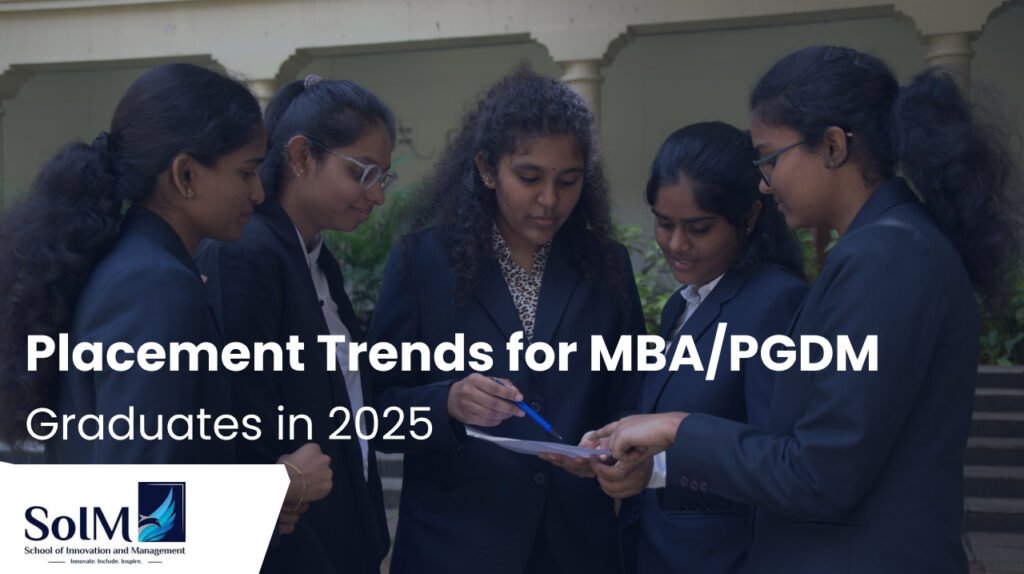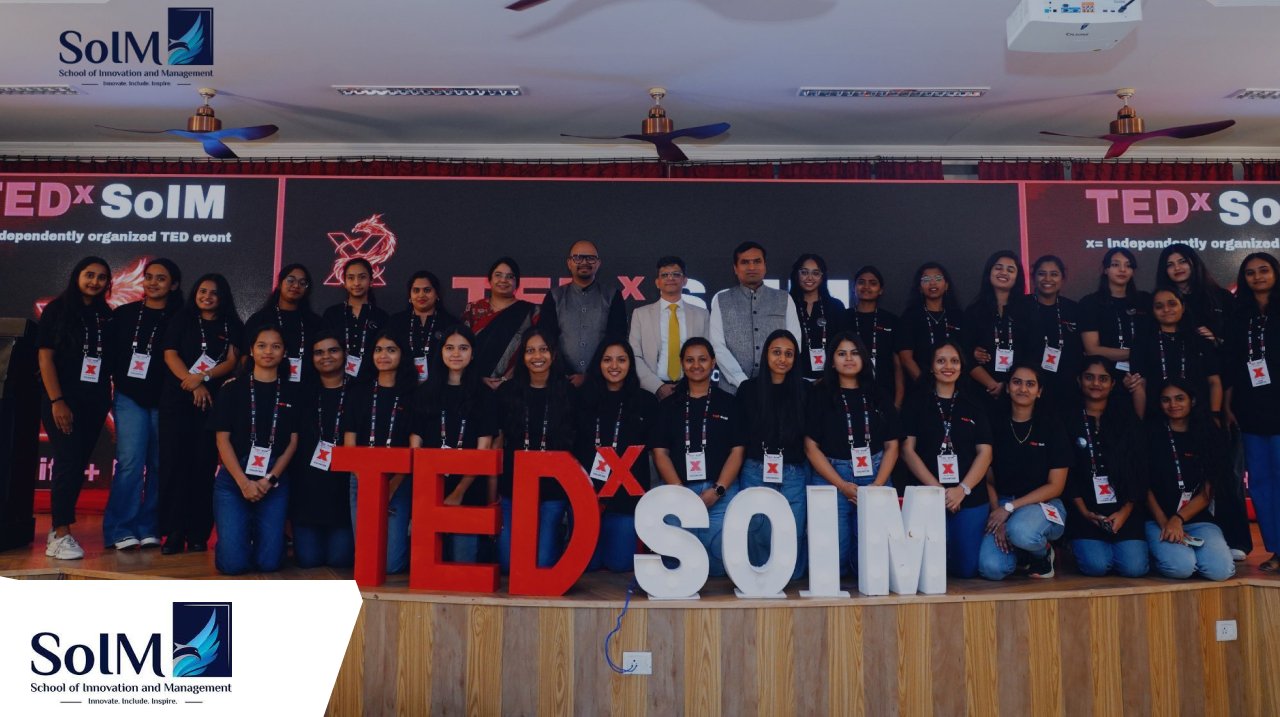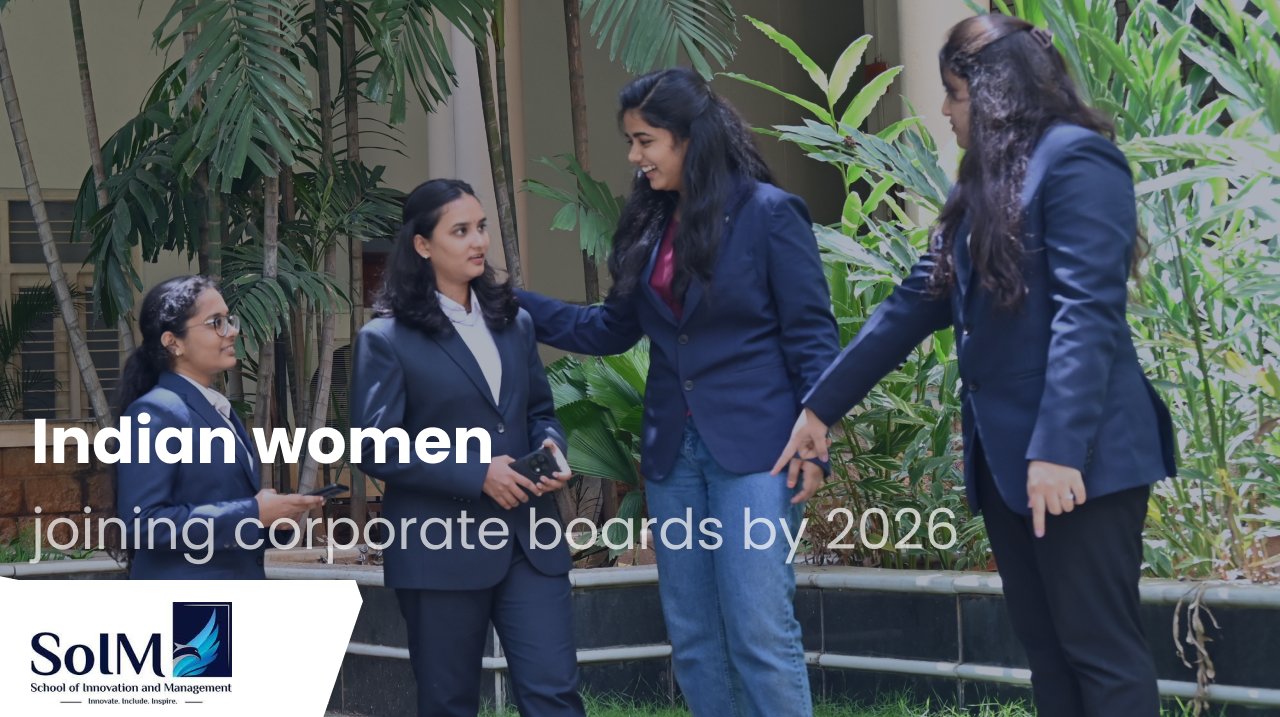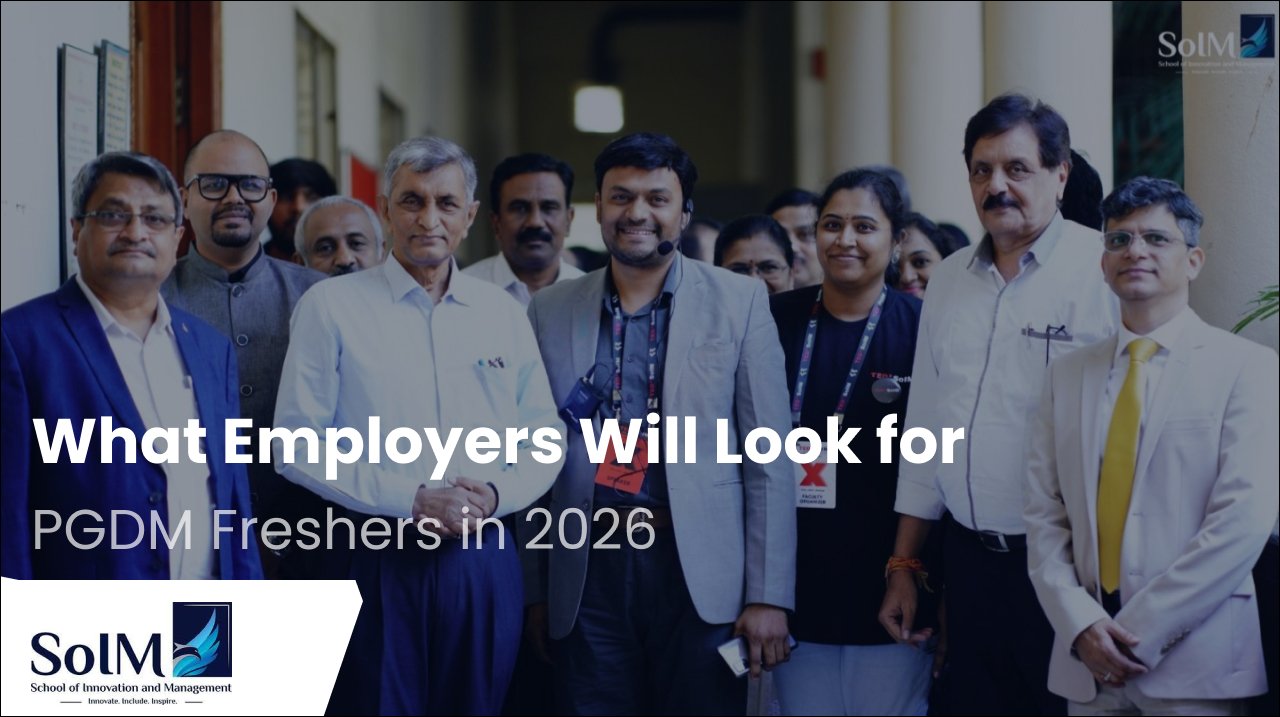
The placement landscape for MBA and PGDM graduates in 2025 is evolving faster than ever. As industries adopt new technologies and rethink business priorities, recruiters are seeking talent that can adapt, innovate, and lead with clarity. This year, several new trends have emerged that directly influence how students prepare and how institutions like SoIM shape their curriculum and training.
Below is a clear look at the biggest placement trends defining 2025.
Tech-driven roles on the rise (AI, data science, cybersecurity)
Technology continues to dominate hiring activity across campuses, and 2025 is proving to be a milestone year. Companies across finance, retail, healthcare, logistics, and even traditional manufacturing are actively recruiting professionals who can work at the intersection of business and technology.
Roles related to AI applications, data analytics, machine learning operations, and cybersecurity management are becoming mainstream. Recruiters are no longer looking for pure coders—they want business leaders who understand how to use technology to drive decisions, reduce risks, and create value.
Some of the most in-demand profiles include:
- Business Analyst
- AI & Automation Strategist
- Cybersecurity Compliance Manager
- Data-driven Product Manager
- Digital Transformation Associate
For MBA/PGDM graduates, this shift means one thing: the ability to interpret data, manage digital tools, and collaborate with tech teams is now essential.
Growing demand in ESG, sustainability, and analytics domains
Companies around the world are being held accountable for sustainability, ethical operations, and responsible governance. As a result, the demand for professionals who understand ESG (Environmental, Social, and Governance) frameworks is rising sharply.
In 2025, recruiters are prioritising candidates with:
- Knowledge of sustainability reporting
- Skills in policy interpretation and risk assessment
- Understanding of global ESG standards
- The ability to analyse environmental and social impact
Analytics plays a key role here as well. Organisations expect managers to use data to track carbon footprint, evaluate business impact, and optimize resources sustainably. This is opening up fast-growing job roles such as:
- ESG Analyst
- Sustainability Consultant
- Risk & Compliance Analyst
- CSR Strategist
Graduates familiar with sustainability frameworks have a clear advantage in interviews and job offers.
Increase in startup and consulting recruiters on campus
Another noticeable trend for 2025 is the rise of startup hiring. High-growth startups, especially in the sectors of fintech, health tech, edtech, and supply chain tech, are actively recruiting from B-schools. These companies offer fast learning environments, diverse responsibilities, and quicker growth opportunities, which attract ambitious students.
Consulting firms—both global and boutique—are also expanding their intake. They are looking for candidates who can think strategically, solve problems quickly, and manage cross-functional projects.
These are some of the roles gaining traction:
- Growth Strategist in early-stage companies
- Business Operations Manager
- Market Expansion Analyst
- Junior Consultant / Strategy Analyst
- Customer Success Strategist
Startups and consulting firms value agility, creativity, and the ability to operate without rigid structures, making them ideal for students who enjoy dynamic work cultures.
Soft-skill trends (leadership, communication) in placement interviews
While technical knowledge and domain expertise are crucial, 2025 has also seen a significant shift towards evaluating soft skills. Recruiters believe that in a rapidly changing business environment, strong interpersonal skills can make or break a candidate’s success.
Interviewers are focusing on:
- Leadership potential – How well a candidate can guide a team or take ownership.
- Communication clarity – The ability to explain ideas simply and confidently.
- Adaptability – Comfort with change, ambiguity, and multi-tasking.
- Critical thinking – Approach to solving complex problems.
- Collaboration – How well the candidate can work with diverse teams.
Many campus interview rounds now include group discussions, case simulations, role plays, and behavioural interviews to assess these skills holistically.
How SoIM is adapting (industry partnerships, updated training)
At SoIM, these emerging trends are not just observed—they are actively integrated into the academic and placement ecosystem. The institute has strengthened its approach to preparing students for the 2025 job market through:
1. Strong industry collaborations
SoIM regularly partners with companies across AI, analytics, consulting, BFSI, and technology services. These collaborations bring real-world projects, guest lectures, and mentorship opportunities to students.
2. Updated curriculum aligned with new-age roles
The curriculum now includes modules on:
- Data-driven decision making
- Sustainability and ESG frameworks
- Digital business models
- AI and automation in management
- Cybersecurity awareness
These additions ensure students are future-ready and confident in handling evolving corporate needs.
3. Placement-focused training and workshops
SoIM conducts:
- Case-study bootcamps
- Interview skill workshops
- CXO interactions
- Resume and personal branding sessions
- Domain-specific certification programs
These interventions directly enhance placement readiness.
4. Exposure to startup and consulting ecosystems
Through incubation partnerships, startup networking events, and consulting-led projects, SoIM equips students with the mindset required to thrive in agile, high-growth environments.
Final Thoughts
The placement trends of 2025 clearly show that the future belongs to professionals who combine business acumen, technological understanding, sustainability awareness, and strong interpersonal skills. For MBA/PGDM graduates, this creates exciting opportunities to build careers in emerging sectors and innovative roles.
With its industry-driven curriculum and commitment to holistic skill development, SoIM is positioning its students at the forefront of these trends—preparing them not only for placements but for long-term growth in a dynamic business world.




